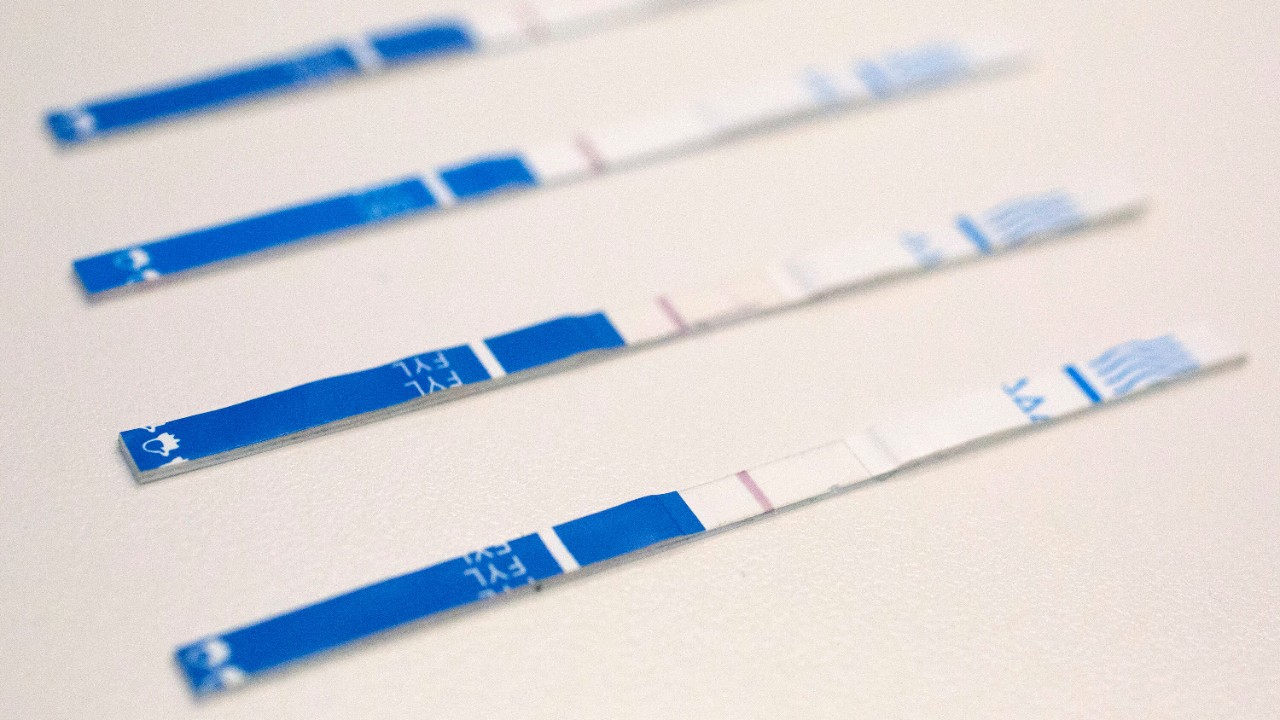
Cincinnati.com: Ohio decriminalized fentanyl test strips. Here's why experts say that matters
UC expert says a vast majority of people who use the test strips changed their drug use behavior
Public health agencies and advocates in Ohio will no longer be breaking the law when they hand out potentially life-saving fentanyl test strips. Cincinnati.com reported that Governor Mike DeWine signed a bill into law Jan. 3 decriminalizing the paper test strips that detect fentanyl and its analogues in drugs. The law takes effect sometime in April. Tasha Turner-Bicknell, director of public health nursing programs at the UC College of Nursing was one of the experts interviewed for the story.
Turner-Bicknell, a board member of Harm Reduction Ohio, told Cincinnati.com it's about time this happened, because the detection strips are a life-saving strategy during an agonizing overdose death epidemic.

Tasha Turner-Bicknell of the UC College of Nursing
The agencies and other groups that handed out the strips weren't being prosecuted, and most people using them weren't charged. But advocates say the law is a step in the right direction in addressing the opioid epidemic.
The Centers for Disease Control and Prevention cleared the way for federal grant money to be used for fentanyl test strips in April 2021. Criminalizing fentanyl test strips also fueled stigma against people who use drugs, said Turner-Bicknell. A lot of people question whether such tools have any impact on people who use drugs, she said.
Turns out, they do. A vending machine outside nonprofit Caracole in Cincinnati's Northside neighborhood offers fentanyl test strips along with Narcan, safe-smoking kits and other "safe-use" products. And surveys from those who use the machine show that fentanyl test strips are making a difference.
"The surveys show that 85% of people who used fentanyl test strips said they changed their behavior with drugs by using these," Turner-Bicknell said. "People who use drugs will use the tools at their disposal to make decisions to protect their health."
Next Lives Here
The University of Cincinnati is classified as a Research 1 institution by the Carnegie Commission and is ranked in the National Science Foundation's Top-35 public research universities. UC's graduate students and faculty investigate problems and innovate solutions with real-world impact. Next Lives Here.
Related Stories
Spectrum News: Pediatric stroke survivor provides care at Cincinnati Children's Hospital
November 14, 2022
David Moskowitz, a UC College of Nursing graduate, is profiled by Spectrum News about his battle with pediatric stroke and a rare genetic condition.
Cincinnati.com: Ohio decriminalized fentanyl test strips. Here's why experts say that matters
January 11, 2023
Public health agencies and advocates in Ohio will no longer be breaking the law when they hand out potentially life-saving fentanyl test strips. Cincinnati.com reported that Governor Mike DeWine signed a bill into law Jan. 3 decriminalizing the paper test strips that detect fentanyl and its analogues in drugs. The law takes effect sometime in April. Tasha Turner-Bicknell of the UC College of Nursing was one of the experts interviewed for the story.
UC Nursing researcher receives $3.4 million grant to study sleep health in young children
October 22, 2024
The Cincinnati Business Courier reports that UC College of Nursing's Dr. Randi Bates is leading a study examining the effects of racism, housing instability, peak levels of screen media use and stress impact sleep health of toddlers and preschoolers.
